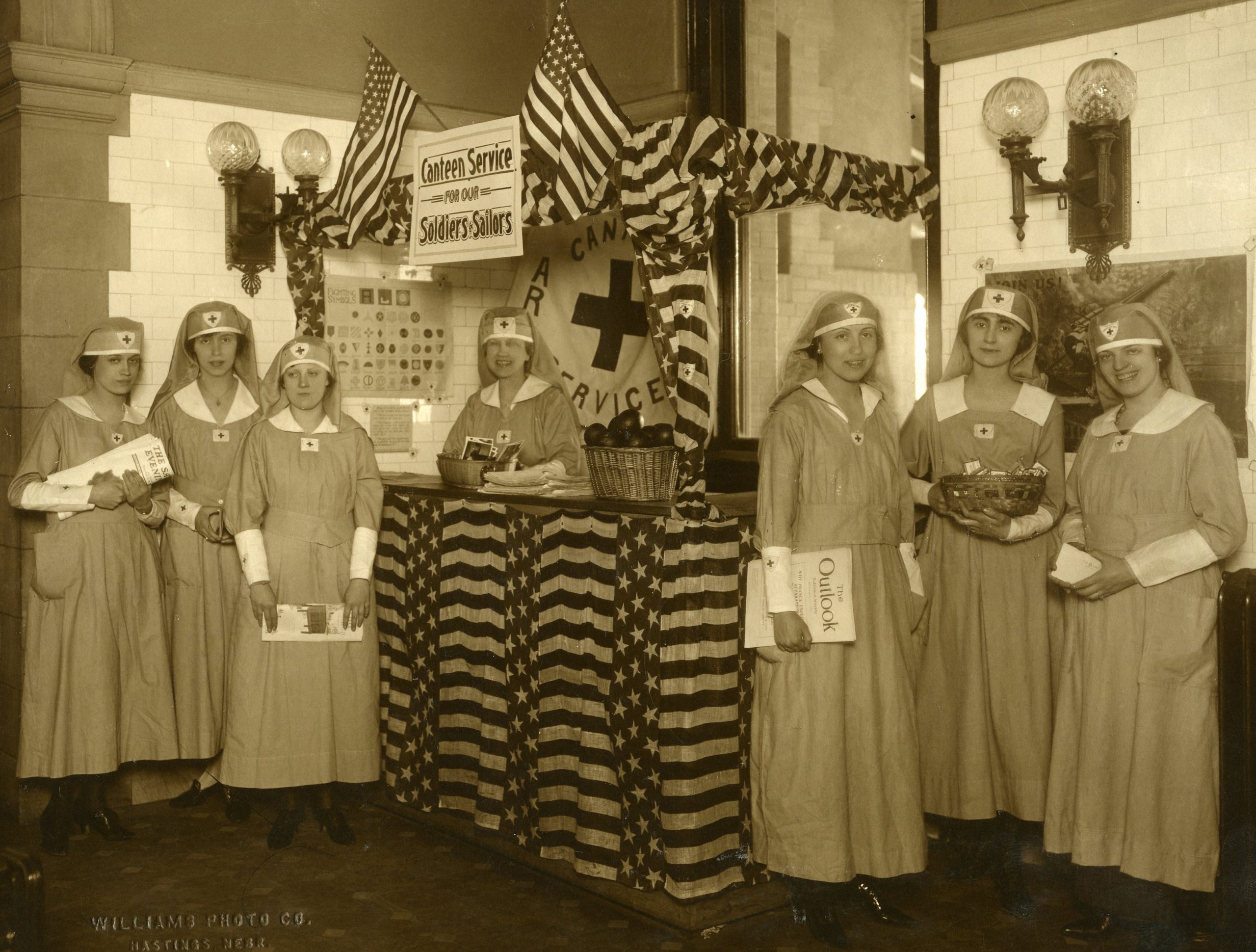
Red Cross Canteen Girls at Burlington Depot during WWI. Courtesy of Adams County Historical Society.
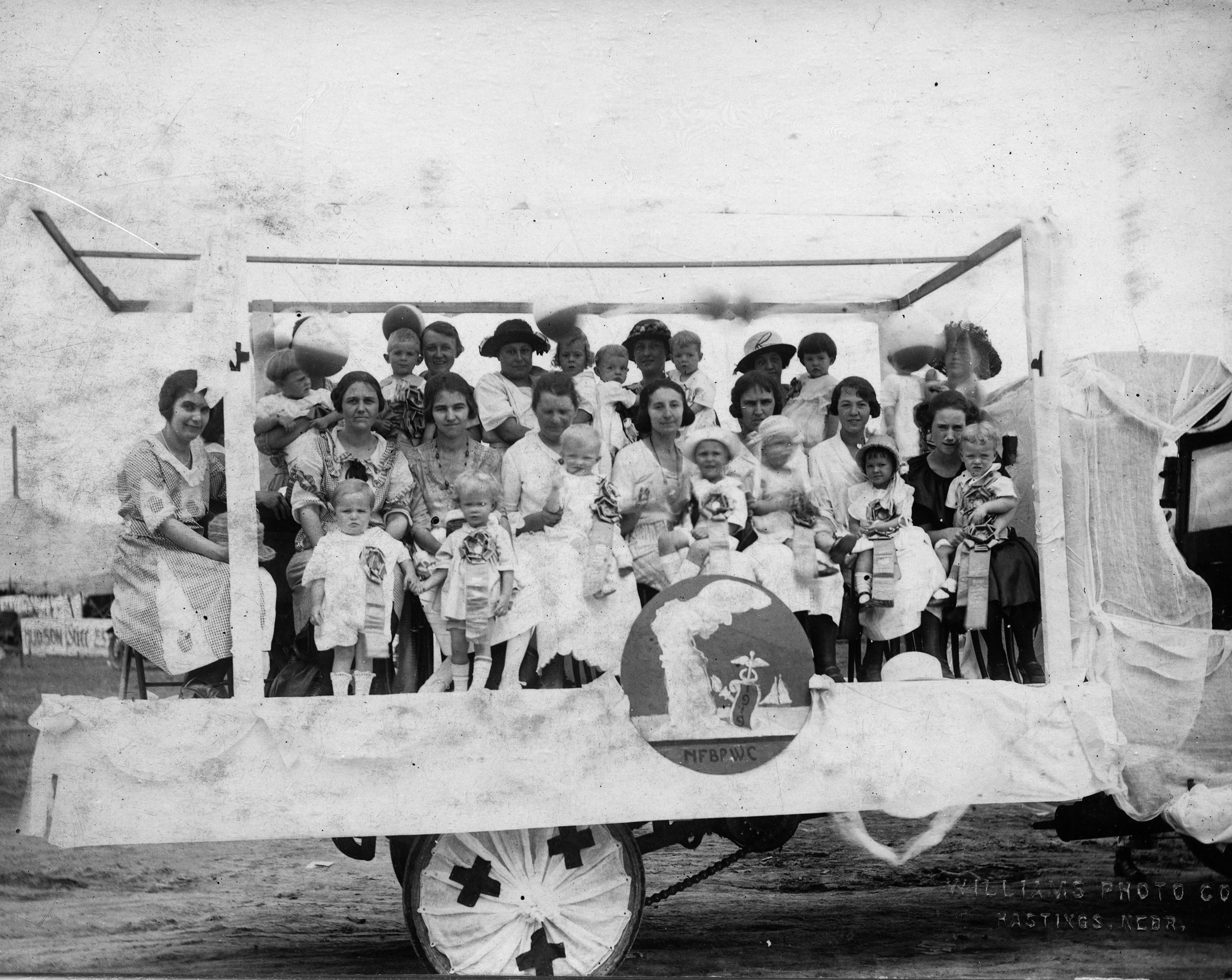
Hastings Business & Professional Women’s Club parade float. Courtesy of Adams County Historical Society.
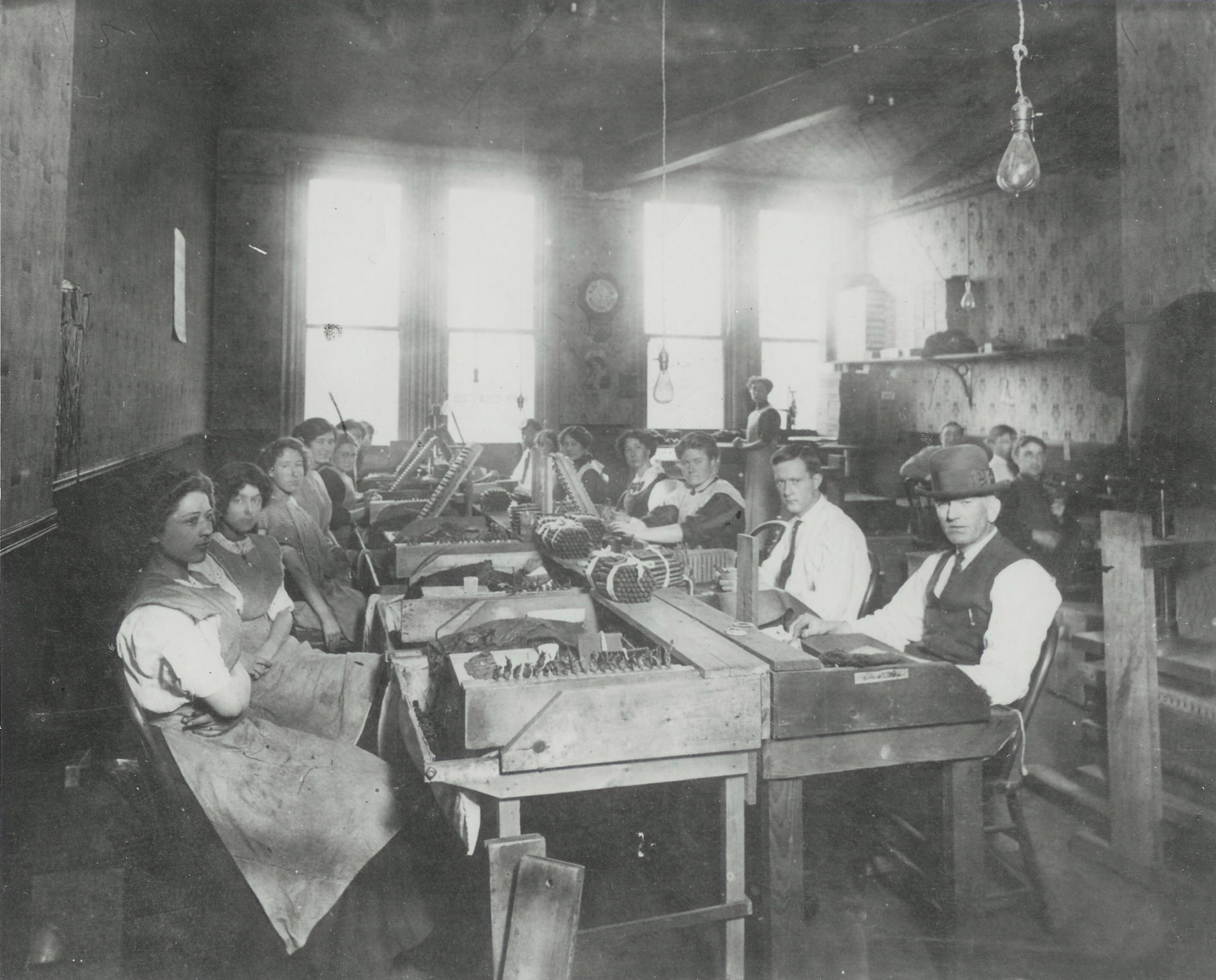
Employees of Kipp’s Cigar Factory. Courtesy of Adams County Historical Society.
Kipp’s Cigar Factory
In 1909, the Kipp Cigar Factory was established. At one point it was the largest cigar manufacturer in Nebraska. Hiring from the local Germans from Russia Immigrant community, John Kipp largely staffed his factories with women. Theoretically, their experience with domestic work and household chores ensured that they worke dwell with their hands and could quickly and efficiently roll and pack cigars.
Women in cigar factories made less than their male counterparts. In November of 1917, both male and female cigar makers went on strike and women would not accept a resolution until both sexes were paid the same rate. Within a month, Kipp accepted their demands. It was likely the first time in Hastings’ history that factory workers were paid equal wages for equal labor. The Equal Pay Act would not come around until 1963.

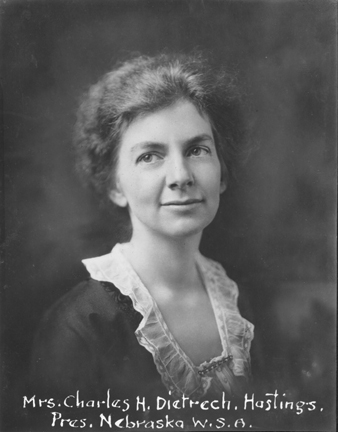
Margaretta Stewart Shaw Dietrich. Courtesy of Adams County Historical Society.
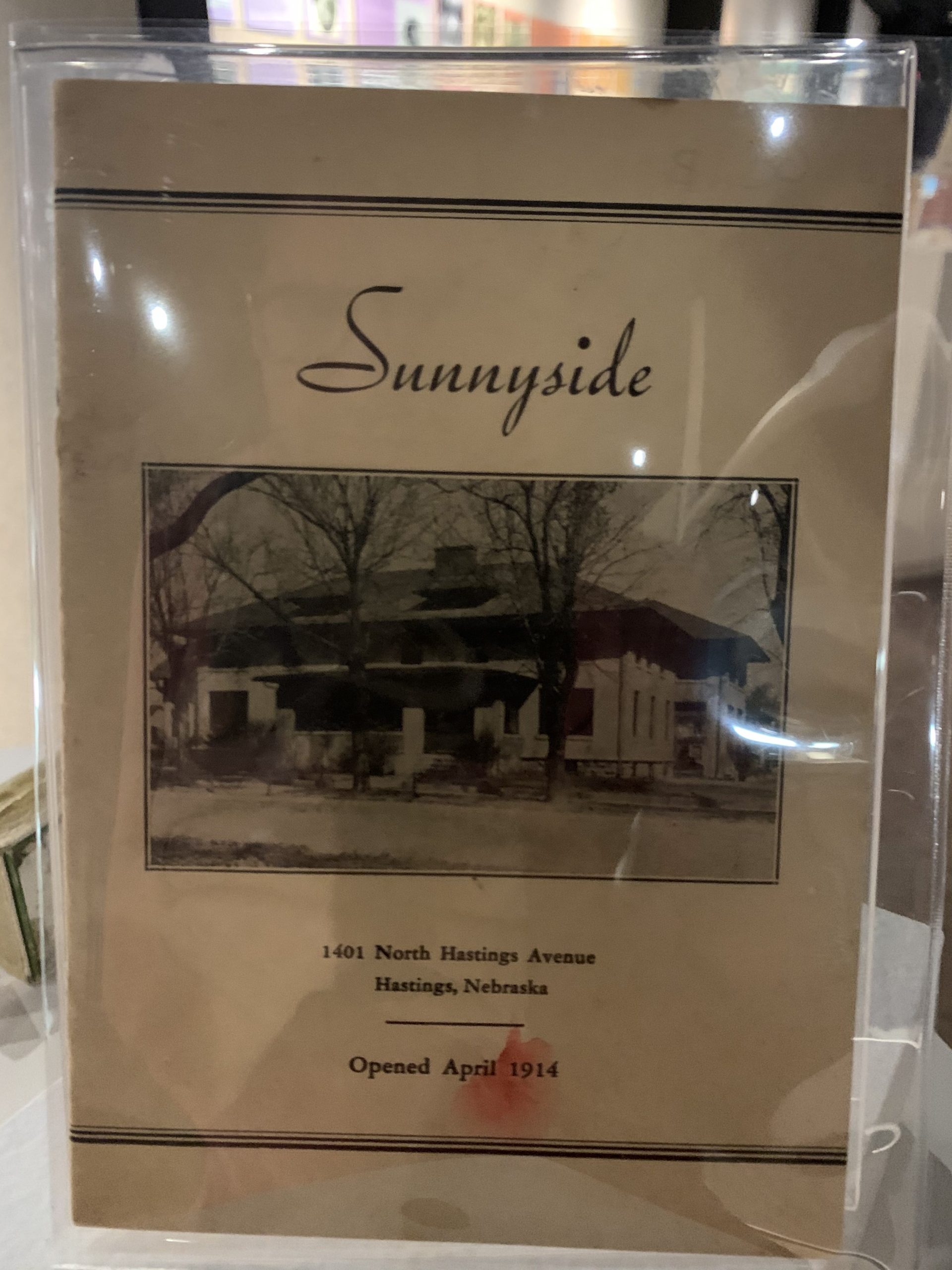
Booklet, 1937. Sunnyside informational booklet.
Margaretta Dietrich
1881-1981
Margaretta is best known for being a suffragette and leader for the rights of women, children, and the elderly across the state. She was an early officer in the Adams County Suffragette Association and was president of the Nebraska Suffragette Association when the 19th Amendment was ratified. The association immediately changed its name to the League of Women Voters, making her the first state president and regional director.
Margaretta Stewart Shaw Dietrich was born in 1881 in Philadelphia, Pennsylvania. She married Charles Henry Dietrich, former Nebraska Governor and US Senator, in 1909, and quickly moved to Hastings.
Margaretta was well-educated and active in charity work in Philadelphia and in Hastings. Her work in Hastings included helping to establish Sunnyside, a home for the aged and dependent, which she later became the director. During World War I, like many women, Margaretta became active in the war effort.
She gave French lessons to men enlisted in the National Guard and spoke across the state on the importance of food conservation.
She established an office in her home and urged women to hold Citizenship Schools so that they could vote intelligently. In her role with the League of Women Voters, she worked for legislation to reduce the death rate of mothers and infants, as well as secure independent citizenship for married women. Margaretta was also a prominent lobbyist for the Child Labor Amendment which did not pass. In 1927, she moved to Santa Fe, New Mexico with her sister where she spent the rest of her life.
The 19th Amendment
The 19th Amendment
Passed by Congress June 4, 1919, and ratified on August 18, 1920, the 19th Amendment guarantees all American women the right to vote. Achieving this milestone required a lengthy and difficult struggle. Victory took decades of agitation and protest. Beginning in the mid-19th century, several generations of women lectured, wrote, marched, lobbied, and practiced civil disobedience to achieve what many Americans considered a radical change of the Constitution. Few early supporters lived to see the final victory in 1920.
Sheppard-Towner Act
Sheppard-Towner Act
The Promotion of the Welfare and Hygiene of Maternity and Infancy Act, more commonly known as the Sheppard-Towner Act was enacted by Congress in 1921. It provided federal funding for maternity and child care.
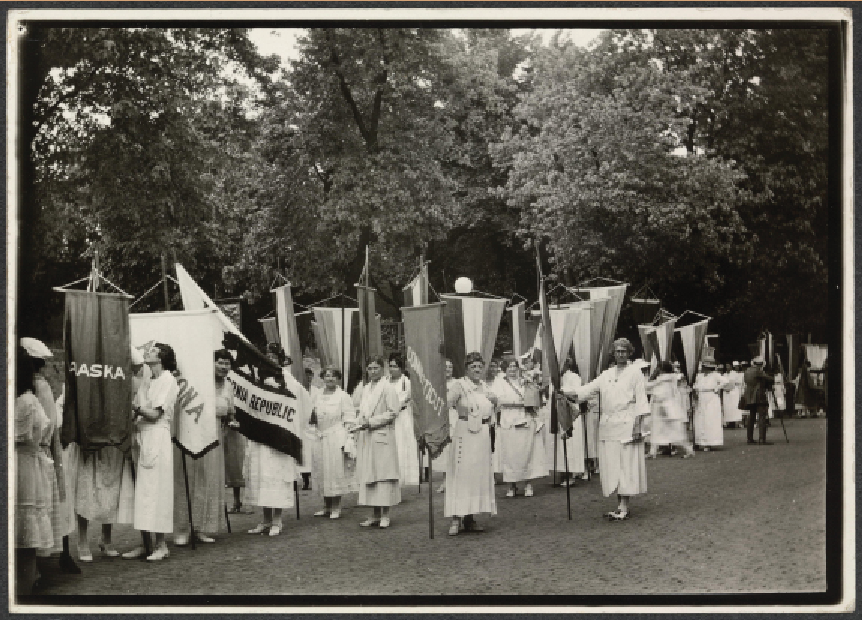
The National Women’s Party with Nebraska Delegates, 1922. Courtesy of Library of Congress.
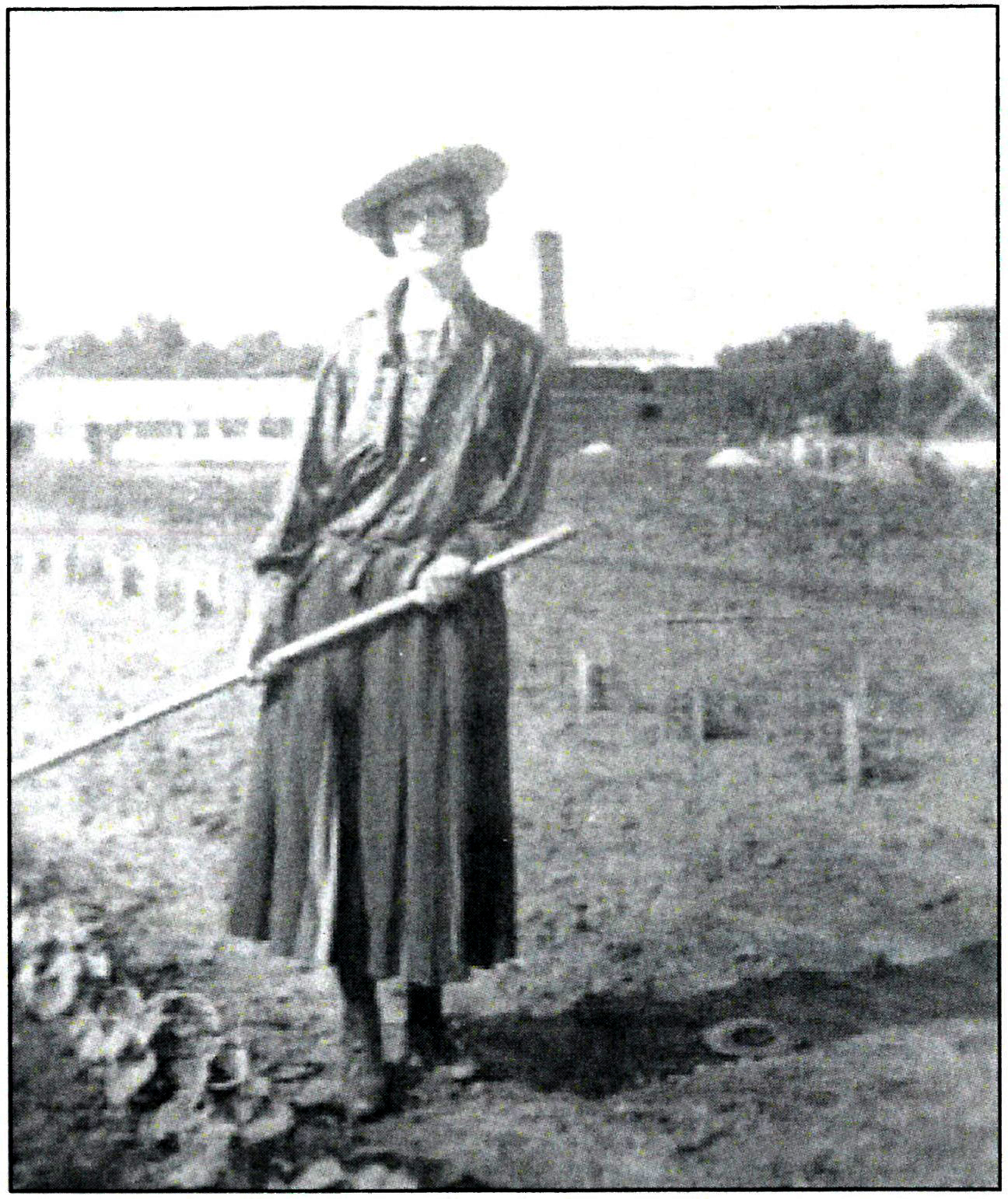
Clara Altman. Courtesy of Hastings College.
Clara Altman
1889-1961
During her 37 years at Hastings College, Clara was head of the language department and dean of women for 14 years. One of the first women educators at Hastings College to earn a doctorate, Clara taught German, French, and Spanish, as well as sociology and other subjects. Her goal was to “teach international understanding along with the languages,” so she organized College-sponsored trips to Mexico, the Caribbean, and Europe. An outgoing and generous person, Clara secretly
paid off the debts of many students and underwrote the educations of several students from foreign countries. She also gave generously to Hastings College, deeding several properties to the school when she retired.
Clara was a strong believer in the Greek ideal of a healthy body and a healthy mind. Instead of driving, she roller-skated, bicycled, or walked everywhere. During the Great Depression, she recognized that few students had funds for recreational activities, so she persuaded College officials to buy dozens of pairs of roller skates. Skating quickly became a favorite social activity on campus. In the evenings, the city would block off Turner Avenue between 7th and 9th Streets to create an outdoor skating rink. She never married and retired to Berkeley, California in 1958.
The Fair Labor Standards Act
The Fair Labor Standards Act
In 1938, the Fair Labor Standards Act established a minimum wage regardless to gender.

